SECDEF Robert Gates & Don Mathis, CEO of Kinetic Social and Navy Officer
By Don Mathis, Kinetic Social CEO
Self-confident leadership: “Not the chest-thumping, strutting egotism we see and read about all the time. Rather, the quiet self-assurance that allows a leader to give others both real responsibility and real credit for success.” So said Robert M. Gates at the U.S. Naval Academy on Friday, May 27, 2011, not long before he left office as America’s 22nd Secretary of Defense (SECDEF).
This sentiment speaks to what really matters for effectively running an organization: confident leadership that puts the team first and empowers them to accomplish the mission. It is also a telling comment on the character of one of the nation’s very best SECDEFs.
Robert Gates’ style of managing organizations has lessons for anyone in a leadership position or aspiring to hold one. While Secretary Gates was in the news earlier this year due to some of criticism of his memoirs, Duty: Memoirs of a Secretary at War, that isn’t what this post is about. The criticism focused on the perceived tell-all nature of a book that was critical of much of official Washington. But this shouldn’t obscure his brilliant career culminating as Secretary of Defense – the first to serve under two presidents of opposing parties. Whether you like his book or not, there is no disputing that his tenure as Secretary of Defense was historic, and that he has been a deeply committed public servant.
And let’s face it, much of the book was spot-on in its observations.
What I do what to focus on is the extraordinary leadership Gates has demonstrated. His style – especially, his empowerment of his teams – has resonance not just for public service, but for leadership of any sort of organization. For me, that includes my civilian work as the CEO of Kinetic Social, a start-up in the social media and technology world. It has also been influential for me as a leader in uniform, during my service as a Naval Officer (both on active duty and in the reserve).
In that same speech at Annapolis, Gates said:
“(Leadership includes) the ability to stand in the shadow and let others receive attention and accolades. A leader is able to make decisions but then delegate and trust others to make things happen. This doesn’t mean turning your back after making a decision and hoping for the best. It does mean trusting in people at the same time you hold them accountable. The bottom line: a self-confident leader doesn’t cast such a large shadow that no one else can grow.”
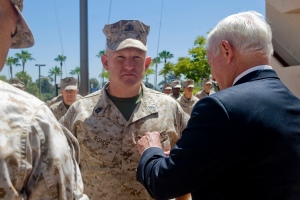
I met a senior Pentagon officer who worked for Secretary Gates for part of his tenure, and he spoke about this quality of having a constructive relationship with a boss who empowered and trusted his subordinates. And he emphasized that this was perfectly consistent with discipline and accountability. “Gates understood that you don’t need to be dick to be an effective and decisive leader,” he said. “This is what so many managers – especially the toxic sort – get wrong.”
Gates’ style, alas, is the exception rather than the rule.
Serving under Secretary Gates as an officer in the Navy, I watched his leadership style closely. While I did not serve in the Pentagon or directly for him, I became a Commanding Officer during his tenure. And I learned a great deal from his tone of management, from the way he motivated by empowering, and from the way he genuinely cared for his subordinates – especially the troops in the field.
I came to summarize and distill Robert Gates’ core approach into a four point guide for running my Navy unit, a guide that I have also used in my civilian career at Kinetic:
- Set a vision: one that inspires and stretches the team towards an important achievement, a disruptive innovation, a major strategic objective;
- Hire / retain / train a great team that can operate together. Not just a group of “A players” (who often struggle with operating together as a team). A group of strong players where you learn their strengths and weaknesses, and you help them focus and contribute the former in a collaborative setting while controlling for the latter;
- Empower that team: get out of their way and let them execute (i.e., don’t micromanage);
- Hold them accountable: for the results you expect, around the vision you set. A good subordinate manager will welcome the accountability; it will help them reach their potential and grow as leaders in their own right.
Few will have the honor of serving their country in the same way that Secretary Robert Gates did. But we all can learn from his leadership example, and implement the lessons learned of how he successfully ran the Department of Defense in a period of enormous and tumultuous challenge for the country.
Follow Don on Twitter @KineticDHM /// Connect with Don on Google+
Don Mathis is the CEO and Co-Founder of Kinetic Social, a social data and technology company focused on making sense of the world’s social signal. He also serves in the US Navy on reserve duty, where he is an Expeditionary Combat Logistics & Anti-Terrorism Officer.

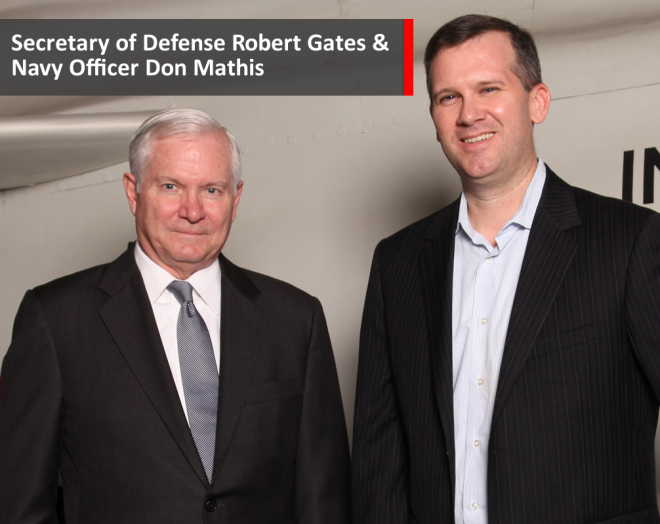
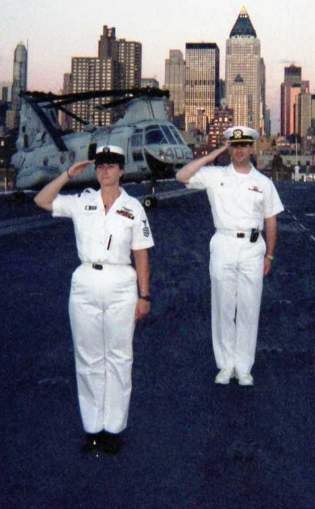

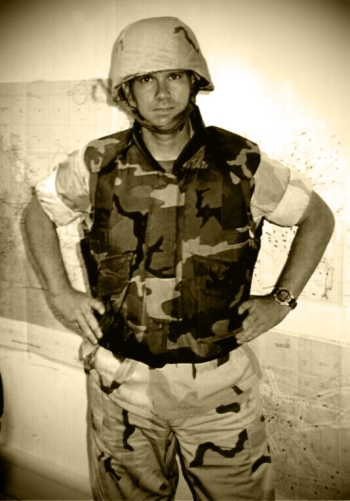

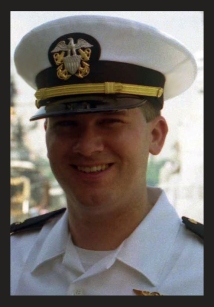 to the online industry I work in, new media forms seem to enhance our collective obsession with over-sharing the banal, with celebrating the pursuit of material gain and capital accumulation, and with narcissistic preening.
to the online industry I work in, new media forms seem to enhance our collective obsession with over-sharing the banal, with celebrating the pursuit of material gain and capital accumulation, and with narcissistic preening.